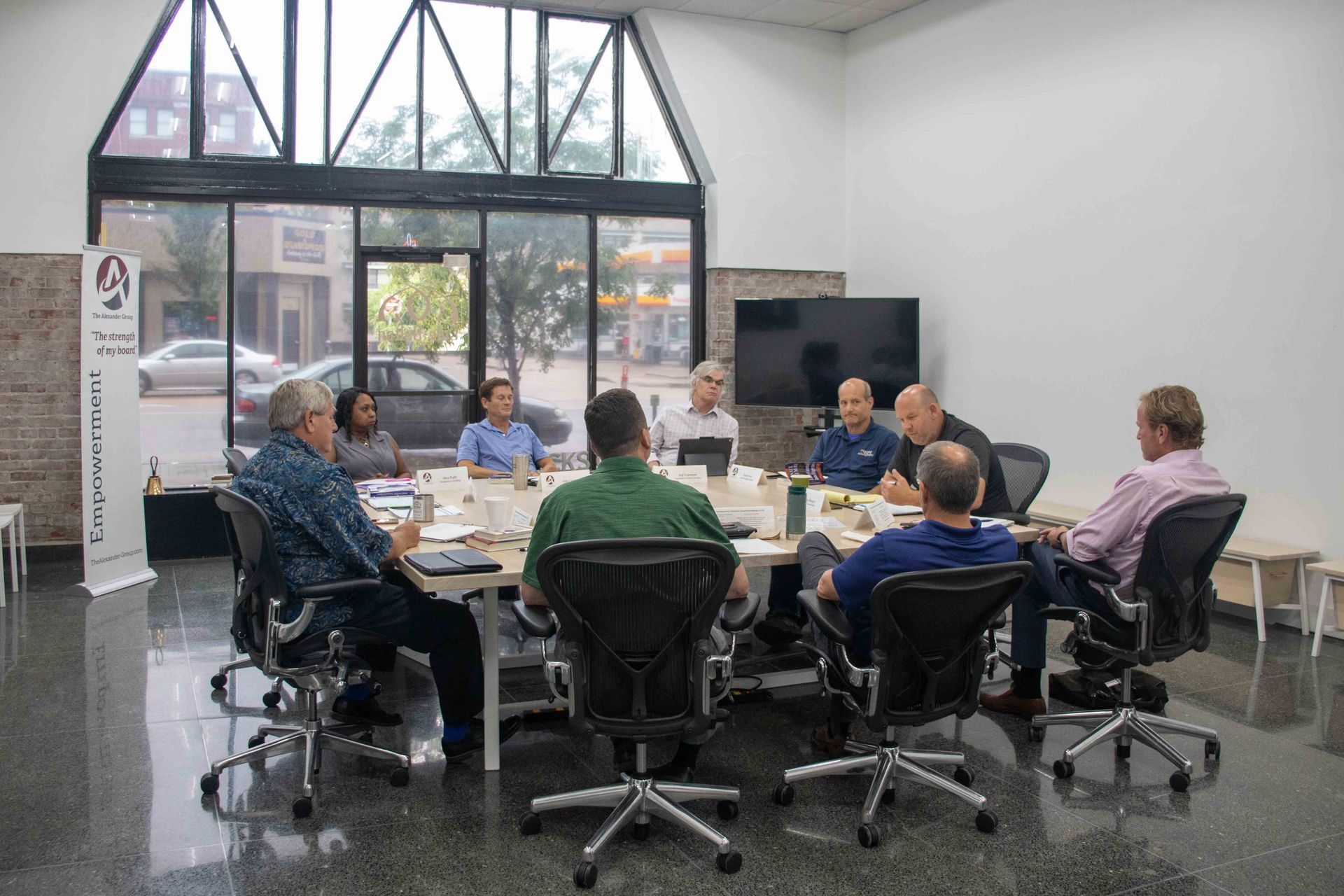New Paragraph
Weathering the Storms of Small Business: A TAG Success Story
May 6, 2024
Dean Branson was one of The Alexander Groups' first clients when our firm started in 2007. Dean was a partner at his independent insurance agency, Midwest Agency. At the time, Dean didn't necessarily realize he needed a business coach, but he did know he needed help because he had a big problem.
An Agency in Crisis
Seventeen years ago, Dean focused on sales, while his business partner handled most of the administrative duties of the agency. However, his partner had a sudden and severe heart issue requiring surgery followed by a lengthy recovery period, leaving Dean with the responsibility of running the business side of the agency, too.
Thrust into his new role as business manager, he was shocked to discover the business was in serious financial trouble. Accounting and tax issues were so serious that the future of the entire agency was in doubt.
As Dean looks back, he is grateful that he connected with Cornell Meyer, founder of The Alexander Group.
First, they applied some forensic accounting to examine whether any fraud occurred. After working with a CPA, Dean and Cornell concluded that Dean's partner had mismanaged the finances. Cornell worked with Dean over the next few years to unwind the partnership and get each party what they needed. Ultimately, they ended the partnership with little disruption to employees and customers. In 2011, the partnership officially concluded, and Dean was ready to take Midwest Agency to new heights.
The Next Chapter, Improving Financials
Next, Cornell and Dean focused on improving financials. It was one thing for Dean to unwind the business from financial troubles and another to build it bigger, better, and more robust. After a dire banking crisis, that year marked a challenging period for small businesses. Many banks were hesitant to give small businesses loans, especially small businesses in the professional services sector, like insurance. Nevertheless, with TAG and Cornell's help, Dean and his team worked to restructure debt, hire new people, improve sales and marketing, and streamline HR.
Considering An Exit
Throughout the next ten years, Dean began to think more deeply about what an exit plan could look like and how to shape the company's future. Initially, the plan was that his daughter Bailey would take over the company. While both felt good about that succession plan, they were still open to other opportunities.
In 2021, Dean researched industry mergers and acquisitions and put word out that he was open to offers leading to a potential deal with a private equity (PE) firm out of Chicago. The process of vetting the offer helped Dean learn his priorities while exposing some improvements his business could make. He and Cornell uncovered an internal opportunity to renegotiate legacy contracts and ultimately realize an additional $100M in agency profit.
Dean declined the offer from the PE firm when he concluded it was too low and the risk too high for his employees, who would have been left vulnerable to layoffs. However, the process of vetting the PE offer with Cornell made a stronger and better Midwest Agency.
Enter First Community Credit Union
In 2021, First Community Credit Union created a wholly-owned subsidiary called First Community Realty. As reported by the St. Louis Business Journal (requires subscription), it's a for-profit affiliate of the nonprofit Credit Union.
By 2023, the success of the Real Estate arm had First Community on the lookout for an independent insurance agency to acquire. They were looking for a specific niche insurance company: one that was large enough that they had experience and valuable contracts yet also small enough to fit their price range. They were considering 20 different insurance companies, and Midwest Agency was one of them.
A critical aspect of the deal for Dean was that the buyer didn't perform a total gut of the staff – many of his employees are like family, so he wanted to be sure they had opportunities. Thankfully, First Community was on board with this and agreed they would keep Dean, his daughter Bailey, and the rest of the team on.
Negotiating The Deal
Cornell and Dean calculated what Midwest Agency would be worth ahead of the deal to ensure Dean would get a strong offer. First Community chose Midwest Agency as their ideal company to buy and made an offer. Dean looked it over and sent it to Cornell. Dean and Cornell drafted the counteroffer and submitted it to First Community the next day.
An hour later, First Community called Dean, accepted the offer and added additional benefits and terms favorable to Midwest Agency.
Sold
Midwest Agency was sold to First Community, and most importantly, Dean and his team's hard work paid off. Dean feels a large part of this successful business move was the advice and guidance from Cornell and TAG.
Dean doesn't just applaud TAG's work in his own story; he also takes the time to recommend TAG to other small business owners who are looking for guidance. Recently, a long-time client and friend approached him to ask for advice on an exit strategy for a plumbing business. He recommended TAG in a heartbeat and would again.
If we can learn anything from Dean and Midwest Agency's story, any challenge small business owners face is easier to navigate with a strong support network. TAG provides this foundation through one-on-one coaching with Cornell and the wisdom and connections of peer boards.

Work With The Alexander Group
Contact us today if you're a small business owner who resonated with any challenges Dean faced throughout his career or similar situations. It's time to take control of your business and commit to continuous improvement!




